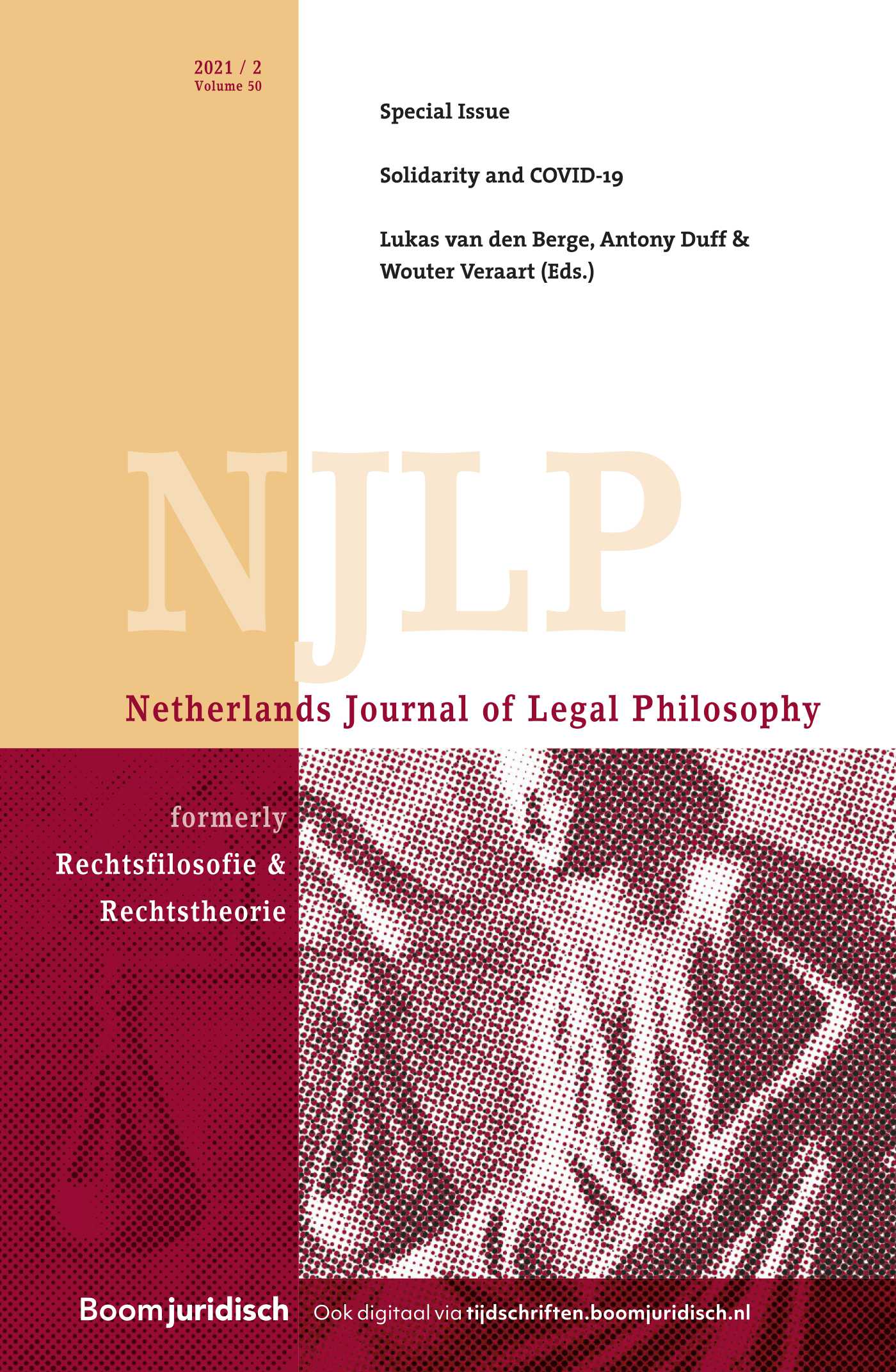|
Een rechtsstaat is gebaseerd op zelfbinding van de overheid aan het recht. Deze zelfbinding moet verankerd zijn in regels die onder meer de onafhankelijkheid van de rechterlijke macht vastleggen. De ontwikkelingen in Polen en elders tonen echter aan dat juridische regels van zelfbinding geen blokkades maar verkeersdrempels zijn op de weg naar despotisch bestuur. Een rechtsstaat vereist vooral een cultuur van zelfbinding. De conceptualisering van deze rechtsstaatcultuur staat nog in de kinderschoenen. |


Netherlands Journal of Legal Philosophy
About this journalSubscribe to the email alerts for this journal here to receive notifications when a new issue is at your disposal.
| Editorial |
|
| Authors | Elaine Mak, Anne Ruth Mackor and Iris van Domselaar |
| Author's information |
| Article |
|
| Authors | Ronald Janse |
| AbstractAuthor's information |
| Article |
|
| Keywords | Freedom of speech, Separation of powers, Criminal law, Hate speech, Legal certainty |
| Authors | Jip Stam |
| AbstractAuthor's information |
|
This article contains a critical review of the provisions in the Dutch penal code regarding group defamation and hate speech. It is argued that not only these provisions themselves but also their application by the Dutch supreme court, constitutes a problem for the legitimacy and functioning of representative democracy. This is due to the tendency of the supreme court to employ special constraints for offensive, hateful or discriminatory speech by politicians. Because such a special constraint is not provided or even implied by the legislator, the jurisprudence of the supreme court is likely to end up in judicial overreach and therefore constitutes a potential – if not actual – breach in the separation of powers. In order to forestall these consequences, the protection of particularly political speech should be improved, primarily by a revision of the articles 137c and 137d of the Dutch penal code or the extension of parliamentary immunity. |
| Article |
|
| Keywords | Urgenda, Miller v. Secretary of State, Norm of judicial apoliticality, Ronald Dworkin, Judicial restraint |
| Authors | Maurits Helmich |
| AbstractAuthor's information |
|
Few legal theorists today would argue that the domain of law exists in isolation from other normative spheres governing society, notably from the domain of ‘politics’. Nevertheless, the implicit norm that judges should not act ‘politically’ remains influential and widespread in the debates surrounding controversial court cases. This article aims to square these two observations. Taking the Miller v. Secretary of State and Urgenda cases as illustrative case studies, the article demonstrates that what it means for judges to adjudicate cases ‘apolitically’ is itself a matter of controversy. In reflecting on their own constitutional role, courts are forced to take a stance on substantive questions of political philosophy. Nevertheless, that does not mean that the ‘norm of judicial apoliticality’ should therefore be rejected. The norm’s coherence lies in its intersocial function: its role in declaring certain modes of judicial interpretation and intervention legitimate (‘legal’/‘judicial’) or illegitimate (‘political’). |
| Article |
|
| Keywords | Judicial independence, Rule of law, Judicial ethics, Hungary, Criminalization of homelessness |
| Authors | Petra Gyöngyi |
| AbstractAuthor's information |
|
This article examines the tension between the constitutional obligation of judges to uphold rules of positive law and possibly conflicting standards of conduct arising from professional-ethical values. The theoretical analysis will be illustrated by the case of Hungary, an EU member state experiencing rule of law challenges since 2010 and where the 2018-2019 criminalization of homelessness exemplifies the studied tension. Inspired by the theories of Philip Selznick and Martin Krygier, rule of law will be viewed as a value that requires progressive realization and context-specific implementation. By contextualizing the relevant Hungarian constitutional framework with the content of the judicial code of ethics and judicial practice, it will be shown how the legitimate space for Hungarian judges to distance themselves from legislation possibly in conflict with rule of law values is reduced. Theoretical suggestions for addressing such rule of law regressions will be made. |
| Article |
|
| Authors | Anneloes Kuiper-Slendebroek |
| AbstractAuthor's information |
|
Voor het evenwicht tussen de staatsmachten, maar ook voor de ontwikkeling van internationaal recht, is de wijze waarop de nationale rechter zijn rol vervult van belang: gedraagt hij zich als rechtsvormer of als een rechtshandhaver? Zowel de legitimatie en vorming van het internationale recht als de handhaving van de internationale verplichtingen van de Staat op nationaal niveau zijn hiervan afhankelijk. Deze belangen worden bezien vanuit internationaal perspectief en uiteengezet aan de hand van recente jurisprudentie. |

 Issue 2
Issue 2